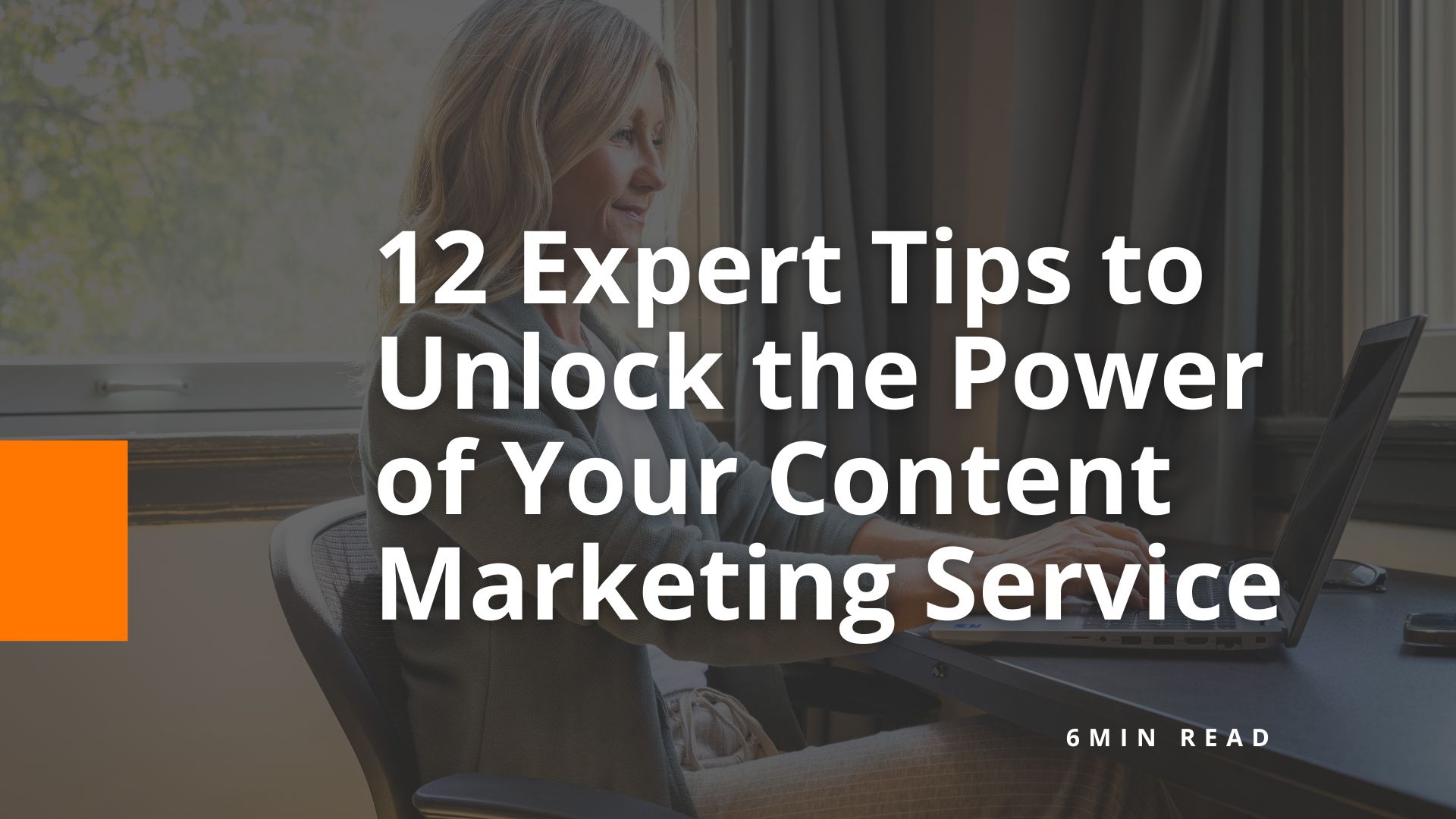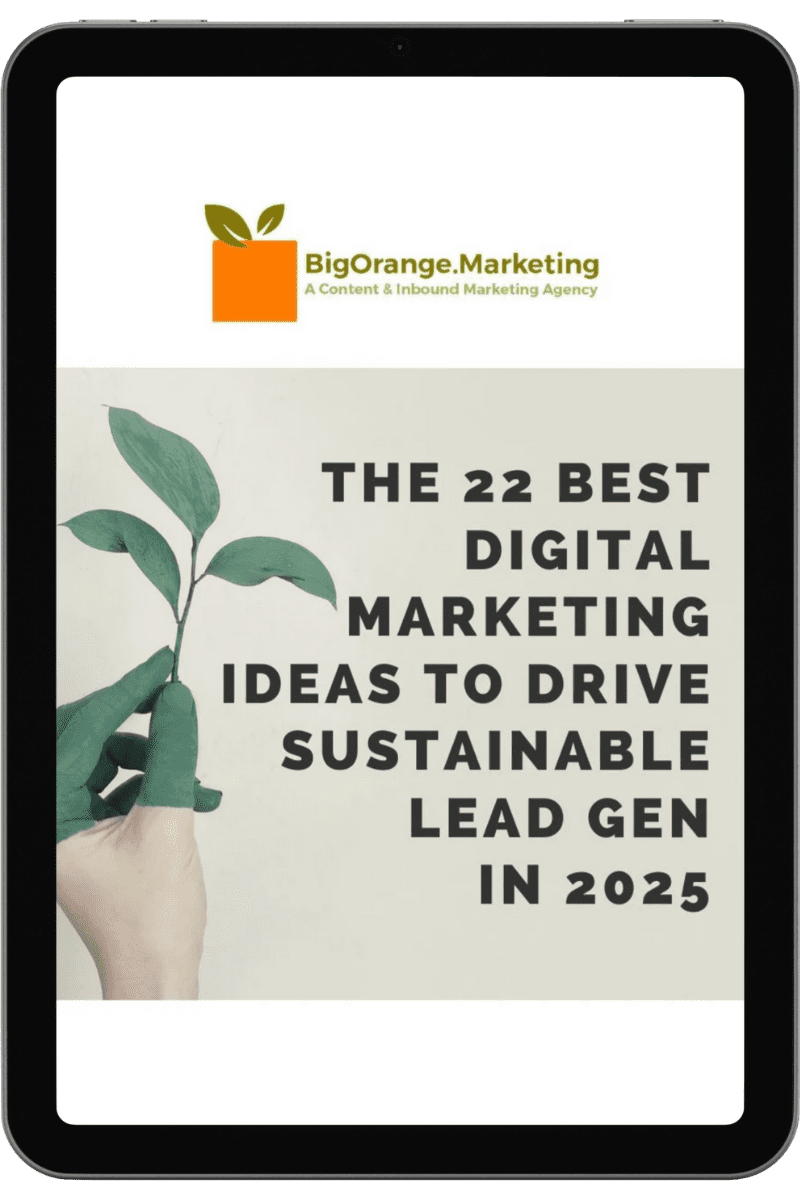SEO Is Dead? That Depends On How You Define It

Rather listen than read? Check out this "Podcast Version" of this post that we created with the AI Tool Google #NotebookLM. It's interestingly IRONIC, isn't it, that the blog post is on the strength of human written great content and it is AI talking. The irony is not lost on us. But give it a listen.
It’s an easy win… Take something that your audience (marketers, business owners) have been focusing a lot of their time and money on (SEO)… then tell them it’s dead; a waste of effort, no longer relevant in the modern landscape. Shouting “SEO is dead!” is a great way to get people to read your article, or a door opener when you are trying to get business away from a competitor.
But that doesn’t make the statement true, relevant or helpful to the businesses and teams it is aimed at.
In my 29+ years in marketing, I have seen this tactic used over and over again and at least three times just for SEO. So SEO is dead, is it? Not even close.
What SEO Actually Means: Search Engine Optimization
Looking at the term literally, search engine optimization (SEO) simply means that you take steps to make sure your website content can be found by search engines and is likely to rank higher than your competitors. In that sense, SEO will never die; at least not until either search engines or website content ceases to exist.
Why Are Experts Saying SEO Is Dead (Or Doesn’t Matter as Much Anymore)
If someone is telling you that SEO is no longer relevant, doesn’t matter as much or is dead, it’s either a sales tactic, clickbait or just plain bad advice. What they usually mean (or refer to when you dig in more) is that the SEO tactics that have worked in the past won’t work anymore. This is only true if you weren’t doing SEO the right way to begin with.
Gaming the Search Algorithms (AI) System
From the dawn of the web, various tactics have been used to help sites rank. These fall roughly into three buckets:
- White hat: Anything you did to boost your rank that was a reflection of the actual site your users experienced. For instance, adding relevant keywords into your existing site copy, URL and metadata. Or improving your technical SEO so that search engines could actually “see” all of that wonderful content you’ve created.
- Black hat: Any SEO tactics that were trying to game the system or trick search engines into ranking you higher than your site deserved based on the real content that users experienced. Page cloaking and keyword stuffing are probably the better-known black hat tactics, but have been many even more disreputable practices over the years.
- Gray hat: Anything and everything in between.
Over the years, many things that started off as white hat SEO tactics turned gray as bad actors tried to game the system and search engines became wiser to the tricks and either banned sites or demoted rankings based on those signals. It is that type of shift that we are seeing now, where the tactics that have been white hat for years are suddenly not as effective because they’ve been used in gray hat ways to game the system. All of this just means it’s time to reevaluate tactics, not that SEO is dead.
Modern SEO For the AI-Driven, Content-Saturated World
Keywords are still relevant. Content is still necessary. Your site’s technical structure, performance and spiderability (for lack of a better term) are still critical. The main difference now is that these all have to be under the umbrella of high-quality, original content that has a voice, offers a point of view and resonates with your audience.
So quality comes first and foremost. For many marketers (like BigOrange Marketing), quality has always come first. You need to:
- Start with an idea that will resonate.
- Develop quality content that your audience will find valuable and engage with.
- Make sure that search engines can “see” that content, recognize the audience it is meant for and glean what the topic it is about.
In case you missed it, the third point refers to SEO — using the truest meaning of search engine optimization.
So how do you create this optimized content? In many of the same ways we have always done, just digging a bit deeper.
Content Shift
It might be time to stop churning out two 300-word blogs a week and focus instead on longer content. It will likely be less frequent, but we’re shifting to a quality over quantity digital world. When considering content topics, start with questions you often hear from clients or prospects. Or, what do you have to say on hot topics that is different or unique from what everyone else is saying? Where do you have particular expertise, experience or perspective to share?
This article is a good example. As someone who has been working on websites since the dawn of SEO and has been working throughout the last 29 years to help businesses of all sizes and industries develop a relevant voice and presence, I have a different perspective than most on the issue of “is SEO dead?”
Which brings me to another point: authorship. Your content should have a voice. It can be yours, a team member’s or even your organization’s voice, but it should sound like it’s coming from a person you could know.
Can you use AI to write it? Not yet and maybe not ever. It’s really hard to get that personal, unique voice we’re going for from generative AI. Unless you’ve spent time training that AI with your specific style and knowledge, it will come off flat.
AI can help, though. Ask it for research. Or pop your article in it when you’re done and prompt it to proof without making style changes. Then it will still sound like you but with fewer typos.
Keyword Focus
Forget short-tail entirely (single- or two-word keywords). Focus on long-tail (three or more words), or better yet, pair long-tail keywords with audience markers like location or industry.
Another change is that keywords shouldn’t come first anymore unless you are starting from scratch and building a library of content to support your business or a new site. They can come at the same time or a close second to your content idea, but not before it.
The keyword/content relationship should follow something like this path:
- Start with a customer question, current event or trending topic. The prompt for this post came when a prospect on a recent call said, “SEO isn’t really relevant anymore.” I’ve heard this before and it’s something we need to educate clients and prospects about more. I decided to write an article on the topic; something like “Is SEO Still Relevant?” or “Should I Stop Working on SEO?”
- Do your keyword research using whatever tool you prefer and come up with something that people are actually searching for that matches the content you want to write AND that you can write around. (It does little good to choose keywords that have 0 search volume or are so awkward you couldn’t really use them in the content or meta information.) For this article, I landed on “SEO is dead” for my keyword. It’s a bit shorter than ideal, but it has a very low competition index and it perfectly aligns with my idea.
- Write the article. You can do this either before or after step 2 but I like to do it before because sometimes that keyword research gives me other ideas to cover in the article that I might not have come up with.
- Put your keywords in the appropriate spots. Make sure they appear within your content (as long as it makes sense in the copy) in all the usual places:
- H1
- At least one or more H2s
- Within the first paragraph on the page (not linked)
- At least one image ALT text
- Your meta title and meta description
Not all of these are “ranking factors” — and having all of them doesn’t guarantee you will rank. But NOT having them makes it much harder for a search engine to understand your content and which users will value it.
Technical and Beyond
All of the above doesn’t you no good if search engines can’t see or read (spider) your site to get the relevant information they need to determine what the site and each page is about. Optimizing your site itself for search can take many forms, including (in no particular order):
- Creating and submitting sitemaps.
- Leveraging structured data.
- Having “readable” site structure and URLs.
- Meeting site speed and performance metrics.
- Offering engagement opportunities (elements on the page that will signal to the search engines that the person who arrived on the page was interested in it).
- Cross-pollinating with relevant pages or other content to keep visitors and search engines moving to other areas of your site.
The One SEO Factor That Has Never Changed
In my 29+ years of helping clients with SEO, one thing has never changed: It takes time. Sometimes a LOT of time. Way more time than you want it to or have the patience for, but trust me, it is worth it. SEO is foundational.
When you are establishing (or improving) the digital presence of your business, SEO is the bedrock on which everything else is built. Without SEO, everything else you do will produce short-lived peaks and bubbles. With SEO, it can be cumulative, building over time. It shouldn’t be the ONLY thing you do. But it needs to be part of your overall strategy.
So SEO Isn’t Dead, What Now?
Take a hard look at how you (or your agency) are approaching your content marketing. Is the idea coming first? Are you considering what your audience is searching for? Is your site reflecting that to both users and search engines? If it isn’t, it might be time for a fresh approach. The BigOrange Marketing team can help. Book a quick meeting to learn more.
Share the knowledge
7 Takeaways From Our Webinar: Employee Stock Ownership Plans and Beyond
Our CEO, Margee Moore, recently hosted a webinar with Intrust IT’s CEO, Tim Rettig. Tim is an experienced leader in mergers and acquisitions and employee…
Explore this Topic8 MSP Marketing Materials You Didn’t Know You Needed
As a managed service provider (MSP), you’ve likely spent countless hours perfecting your service offerings and building strong relationships with clients. But have you ever…
Explore this Topic12 Tips for Getting the Most From Your Content Marketing Service
Marketing for your business shouldn’t feel like dragging rocks uphill. If you’re investing in a content marketing service, you want to ensure every effort counts…
Explore this TopicNew StoryBrand Site Launched for Hospitality Technology Consulting Company
When our long-term client, ATC, decided to expand their hospitality sector with a new brand — ATC Hospitality — they needed a website tailored to…
Explore this TopicLandscaper Marketing: Green Industry Statistics Tell the Story
In the U.S., the green industry includes much more than just “landscaping.” This thriving sector is built on passion, creativity and a lot of hard…
Explore this TopicOnce Upon a Time: StoryBrand Website Examples for 2025
Is a new website a part of your marketing plan for 2025? If not, it might be time for a new one, especially if it’s…
Explore this TopicUnleashing the Inner Spielberg: BigOrange Presents StoryBrand Framework for Websites to NAHB Builders
I was thrilled to be invited to Indianapolis to present at a National Association of Home Builders (NAHB) Builder 20 Club event this October. Sharing…
Explore this TopicOne Page Marketing Plan for 2025: EOS or OGSM
You need a solid one-page marketing plan to reach your big 2025 goals. Whether your organization follows the Entrepreneurial Operating System (EOS) outlined in Traction,…
Explore this Topic









